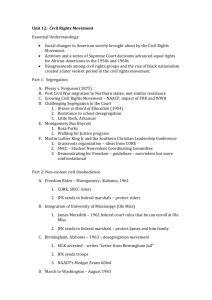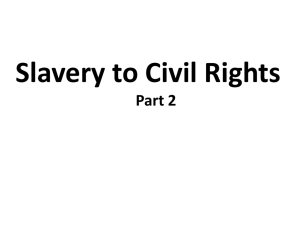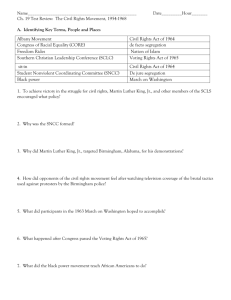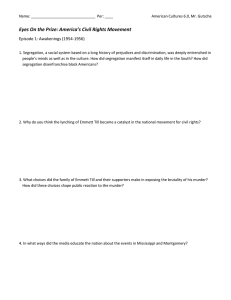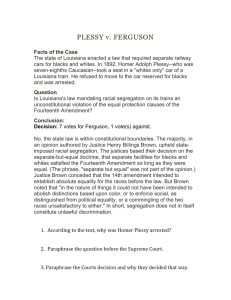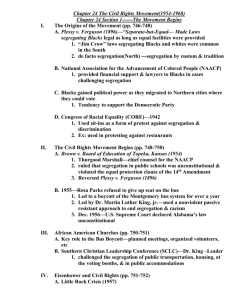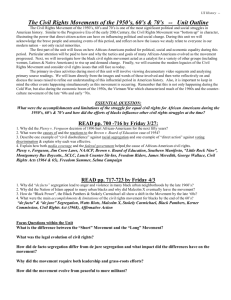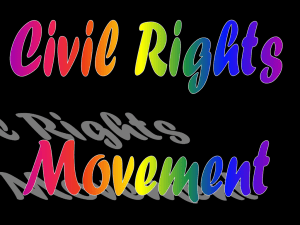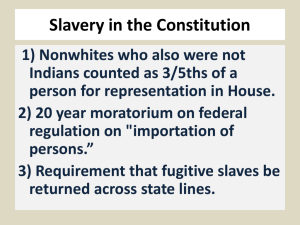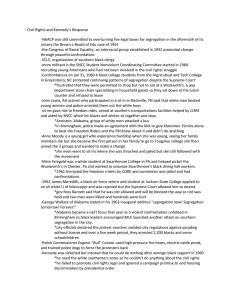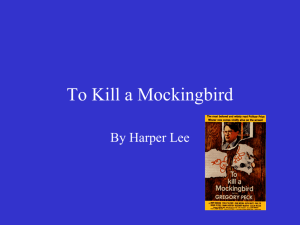Chapter 29, Section 3 Notes: Challenges & Changes in the Movement
advertisement
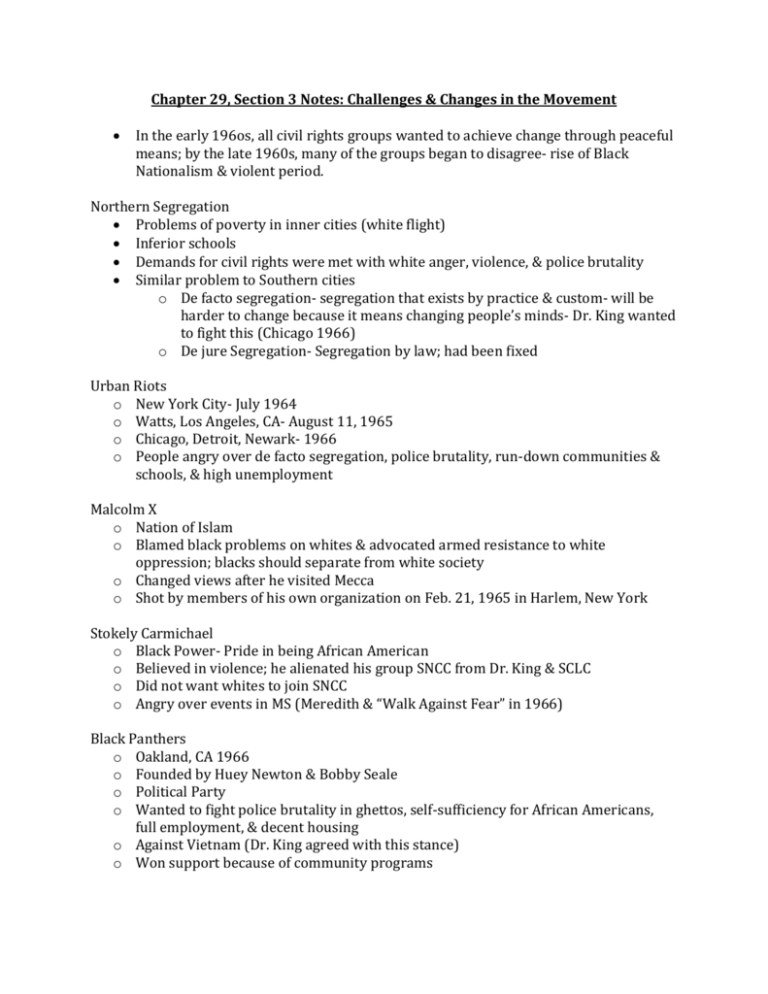
Chapter 29, Section 3 Notes: Challenges & Changes in the Movement In the early 196os, all civil rights groups wanted to achieve change through peaceful means; by the late 1960s, many of the groups began to disagree- rise of Black Nationalism & violent period. Northern Segregation Problems of poverty in inner cities (white flight) Inferior schools Demands for civil rights were met with white anger, violence, & police brutality Similar problem to Southern cities o De facto segregation- segregation that exists by practice & custom- will be harder to change because it means changing people’s minds- Dr. King wanted to fight this (Chicago 1966) o De jure Segregation- Segregation by law; had been fixed Urban Riots o New York City- July 1964 o Watts, Los Angeles, CA- August 11, 1965 o Chicago, Detroit, Newark- 1966 o People angry over de facto segregation, police brutality, run-down communities & schools, & high unemployment Malcolm X o Nation of Islam o Blamed black problems on whites & advocated armed resistance to white oppression; blacks should separate from white society o Changed views after he visited Mecca o Shot by members of his own organization on Feb. 21, 1965 in Harlem, New York Stokely Carmichael o Black Power- Pride in being African American o Believed in violence; he alienated his group SNCC from Dr. King & SCLC o Did not want whites to join SNCC o Angry over events in MS (Meredith & “Walk Against Fear” in 1966) Black Panthers o Oakland, CA 1966 o Founded by Huey Newton & Bobby Seale o Political Party o Wanted to fight police brutality in ghettos, self-sufficiency for African Americans, full employment, & decent housing o Against Vietnam (Dr. King agreed with this stance) o Won support because of community programs Assassination of Dr. King o April 3, 1968 o James Earl Ray o Memphis, TN o Death lead to urban rioting Legacy of the Civil Rights Movement o Many political gains: 24th Amendment, Civil Rights Act of 1964, Voting Rights Act of 1965 & Civil Rights Act of 1968; more blacks in politics o Social gains- More pride in being African American-African Studies programs & culturally diversity in schools, more blacks in media/pop culture o Economic gains- more blacks going to college, getting better jobs o Affirmative Action- Programs that involved making special efforts to hire or enroll groups that have suffered discrimination; mostly colleges/companies that do business with federal government; been challenged in recent years as reverse discrimination
